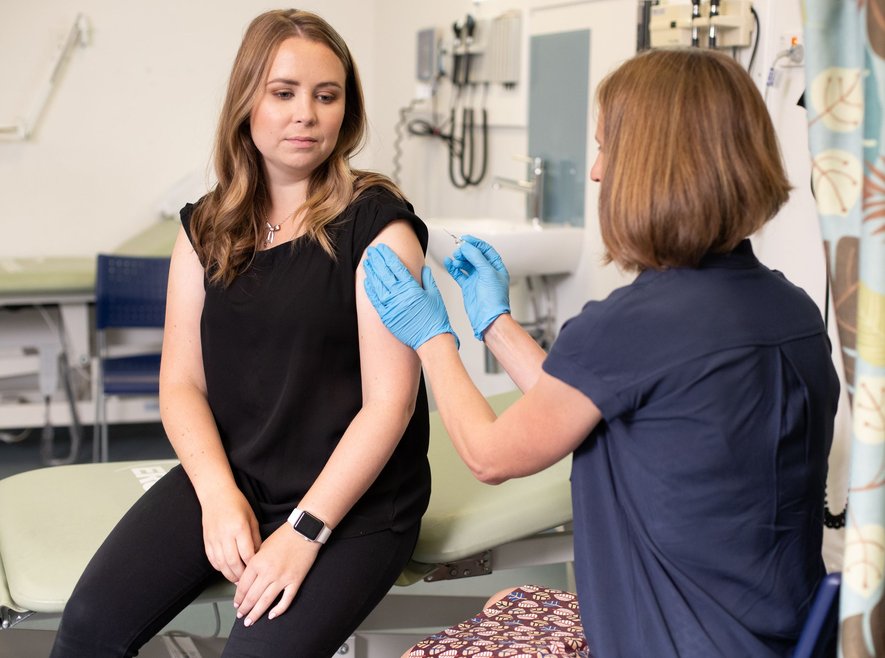7.2: Immunisation
7.2: Immunisation screening and recall
The National Immunisation Schedule is the series of publicly funded vaccines available in New Zealand. The Ministry of Health remains responsible for and manages the National Immunisation Programme.
| Standard - what we'll be assessing on | Evidence to provide for assessment |
|---|---|
|
National immunisation schedule: The practice identifies and recalls all patients requiring immunisations. |
|
The National Immunisation Schedule
The National Immunisation Schedule is the series of publicly funded vaccines available in New Zealand. Some vaccines are also offered as part of an extended immunisation programme for targeted special groups in response to a recognised need.
The Ministry of Health remains responsible for and manages the National Immunisation Programme, which:
- aims to prevent disease through vaccination and to achieve coverage that prevents outbreaks and epidemics
- is accountable for achieving the Immunisation Health Target
- monitors disease burden and those most at risk
- provides guidance to the sector on immunisation, cold chain, and resources
- ensures immunisation providers deliver services that meet the needs of their population
- implements the National Immunisation Schedule
- delivers trusted and effective vaccine programmes
- provides immunisation resources, including the Immunisation Handbook
- improves information and data systems
- manages the Aotearoa Immunisation Register (AIR) which has replaced the National Immunisation Register (NIR) and COVID Immunisation Register (CIR) National Immunisation Register (NIR).
The Ministry of Health works with PHARMAC to ensure there is a strong link between vaccine decisions, management, and the National Immunisation Programme.
Pre-calling newborns for 6 week vaccinations
Pre-call screening refers to newborns being enrolled in a practice by accepting their NIR notification. This means providers can pre-enrol newborns and claim funding for them before the full enrolment process is completed. The provider sends a letter to the family welcoming the newborn to the practice, ideally within a week of receiving the nomination, and include enrolment information.
Once the newborn is pre-enrolled, the provider should pre-call the newborn at four or five weeks of age for their six-week immunisation appointment and a general health and physical assessment, and again if the newborn does not attend either of these appointments. See the Ministry of Health’s Newborn Pre-Enrolment toolkit for more information.
The process aims to ensure that:
- Newborns are enrolled with a general practice and PHO as early as possible
- newborns receive their immunisations on time
- The risk of children falling through the gaps in our health system is minimised.

Data
Immunisation data is collected by the National Immunisation Register. This data is reported to PHOs and disseminated to general practices by age and ethnicity. Māori children have a lower rate of immunisation compared to non-Māori. Having access to timely data which identifies these rates helps practices identify need for improvement initiatives and benchmark progress. Data must be less than six months old at time of assessment.
Documented recall process
Having a team member (or members) responsible for overseeing the management of recalls creates accountability and helps ensures patients are not missed or lost in the system.
A documented immunisations recall process must include:
- methods used to recall patients
- the process
- the frequency of recalls
- opportunistic methods
- documentation and alert systems
- roles and responsibilities of all team members involved (including non-clinical team members)
- timelines.
Links to resources
-
Immunisation Advisory Centre
-
Immunisation Handbook 2024 v1
-
Equity and Best Practice immunisation
-
MoH: Newborn Pre-Enrolment toolkit
-
The Centre for Adverse Reactions Monitoring (CARM)
-
National and DHB immunisation data
-
National Immunisation Register (NIR)
-
Proactive immunisation for Māori tamariki will save lives